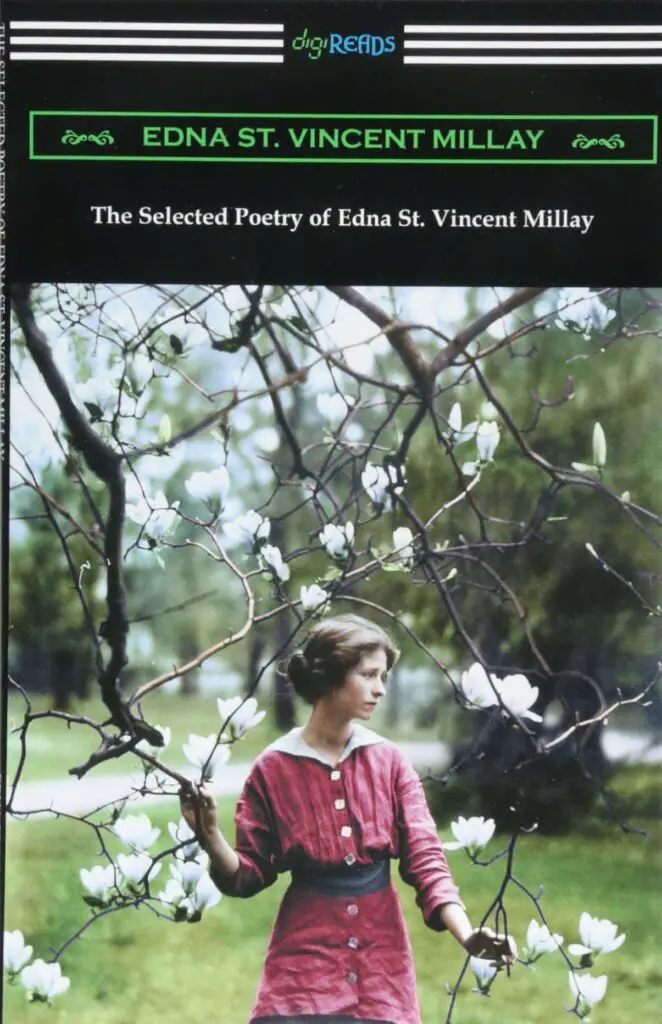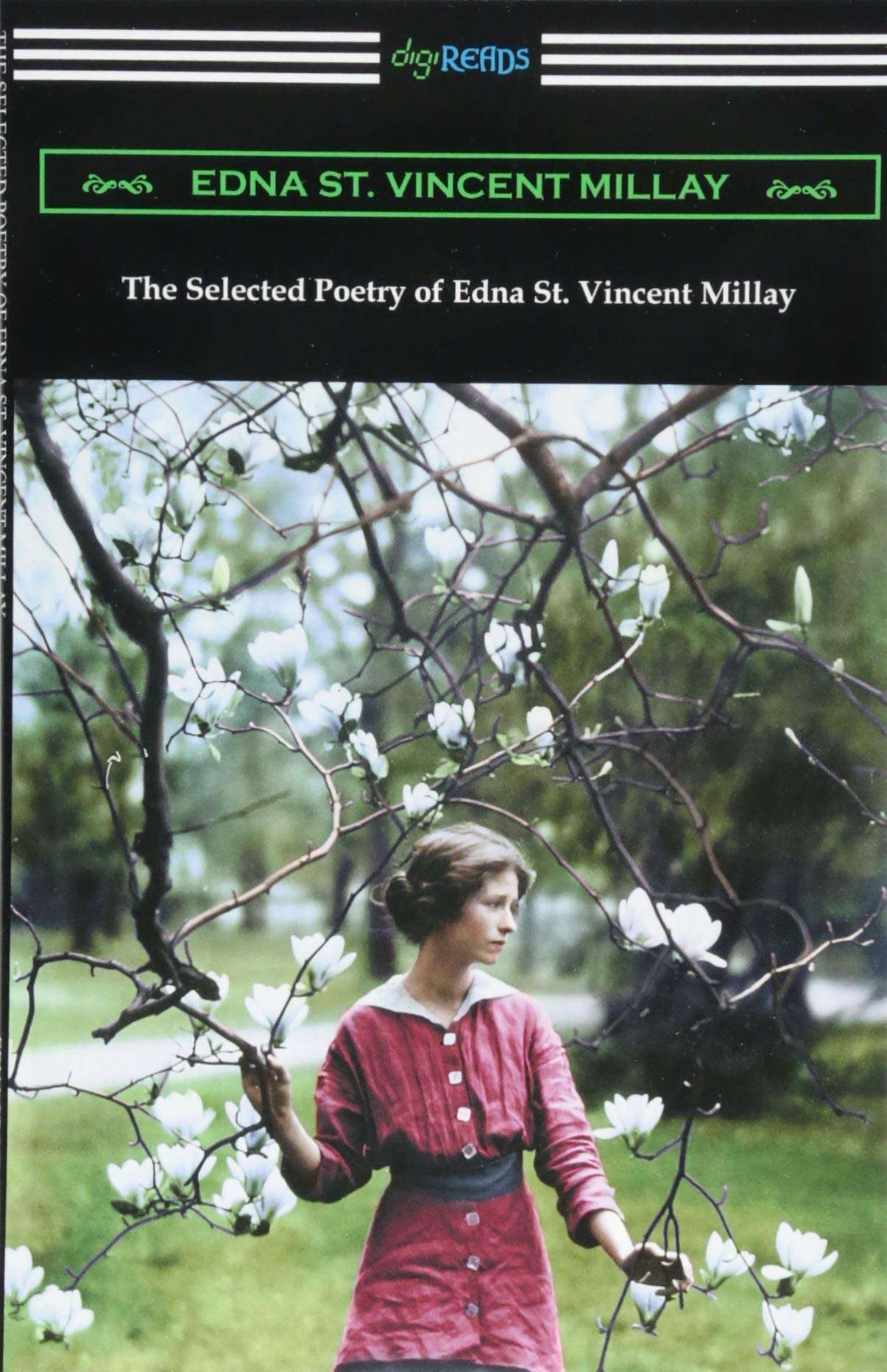Renascence and Other Poems by Edna St. Vincent Millay
Words written by a 19-year-old, in an epic poem of death and rebirth, of
loss and hope, of decay and of immeasurable beauty. Over 200 lines of exuberance and despair and triumph. Yet one phrase from Edna St. Vincent Millay’s lyric poem “Renascence” struck me like a thunderbolt when I first read it.

“God, I can push the grass apart
And lay my finger on Thy heart!”
When I was younger, I used to lay on my stomach in the backyard, and work my fingers thought the blades of grass until I could feel the cool, moist earth below. I would think of the dirt extended down past my outstretched hands, past layers of soil and grit, through rock and molten slag to the very center of the world. I could feel it all moving and shifting and flowing down below me, through miles and miles of permanence that would never allow me to fall.
It was years later before I would discover the poems of Edna St. Vincent Millay, but they would make an indelible impression on me. Eventually, they would speak to me beyond the backyard, and follow me into the boardroom.
“My candle burns at both ends;
It will not last the night;
But ah, my foes, and oh, my friends—
It gives a lovely light!”
And her words continued to echo my own life, in so many ways both ecstatic and mundane.
“I know what my heart is like
Since your love died:
It is like a hollow ledge
Holding a little pool
Left there by the tide,
A little tepid pool,
Drying inward from the edge.”
The woman herself captivated me, so delicate in stature, so fierce in life at a time when women were expected to be demure and shrinking. Her poems may not have the stony pith and sharp wit, the grandiose flauntings or the measured scholarship of others, but for me, they ring so true. In this National Poetry Month, I can think of no better established poet to celebrate than Edna St. Vincent Millay.
—Sharon Browning

